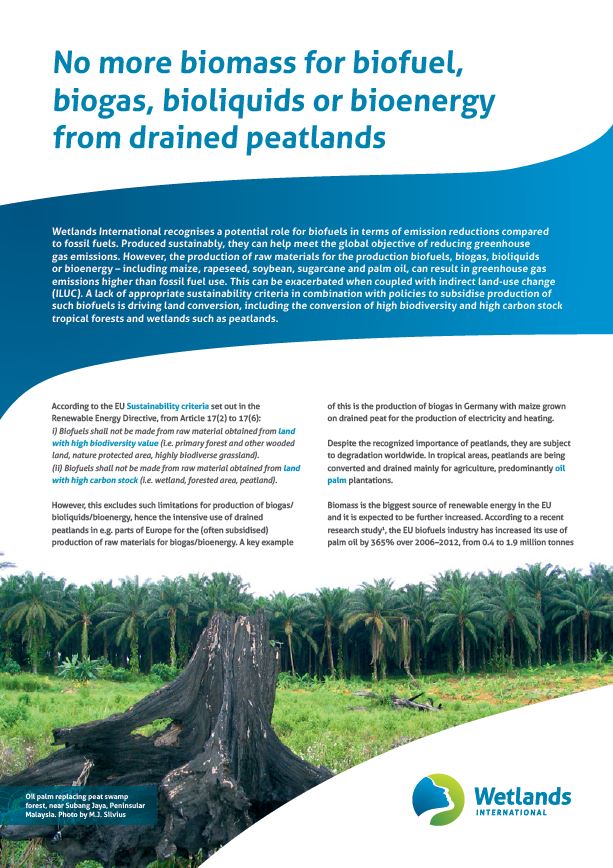
No more biomass for biofuel, biogas, bioliquids and bioenergy from drained peatlands
Despite the recognized importance of peatlands, they are subject to degradation worldwide. In tropical areas, peatlands are being converted and drained mainly for agriculture, predominantly oil palm plantations.
The production of source materials for bioenergy should not be obtained from land with high carbon stock, such as peatlands and other wetlands, as drainage and cultivation of these areas results in elevated carbon emissions; higher than equivalent use of fossil fuels. This should not count only for biomass, but for all forms of biofuels, bioliquids and biogas production.
For biofuels produced on peatlands this can be achieved by producing biomass on rewetted peat (using paludiculture techniques). We urge appropriate certification standards and capacity to develop sustainable bioenergy, both in terms of ecological, biodiversity, social and GHG impacts.
Some of our key messages:
- Halt any further expansion of oil palm cultivation on peatlands;
- Phase-out drainage-based land-use from peatlands and consider alternative economic land-use options;
- The EU should adopt certification schemes that will ensure full traceability of palm oil and compliance with the sustainability criteria in the Renewable Energy Directive and Fuel Quality Directive;
- RSPO must accomplish full incorporation and implementation of RSPO Next and RSPO RED in its own membership and beyond;
- SAVE Peatlands as part of the major global frameworks.

